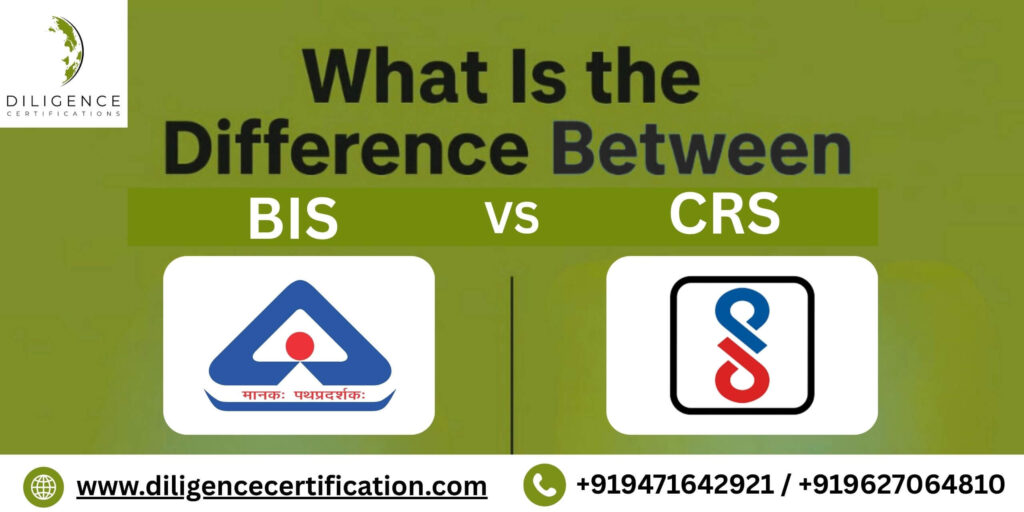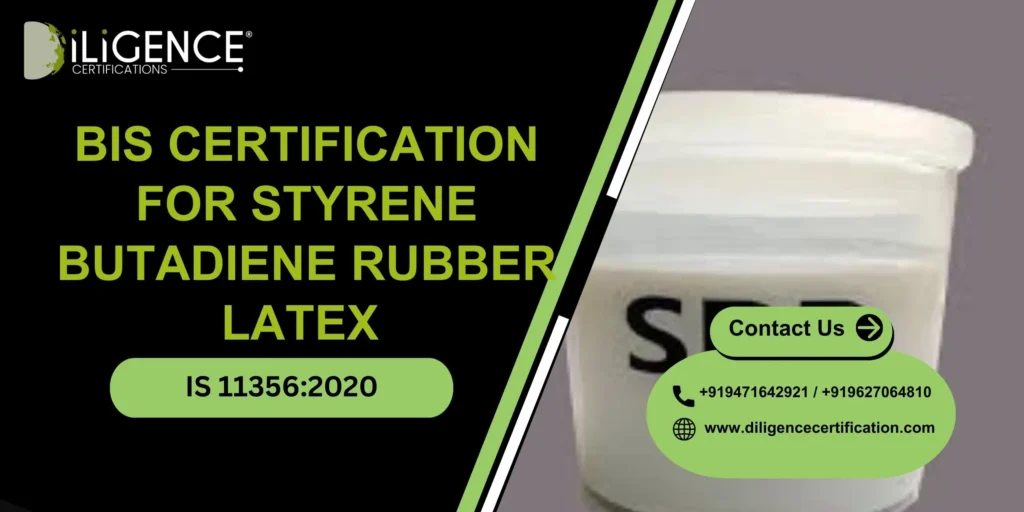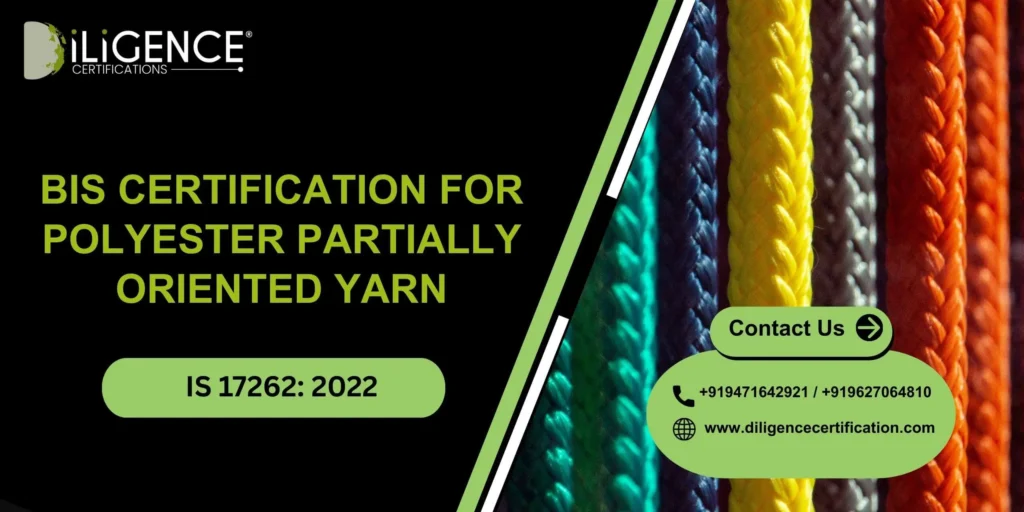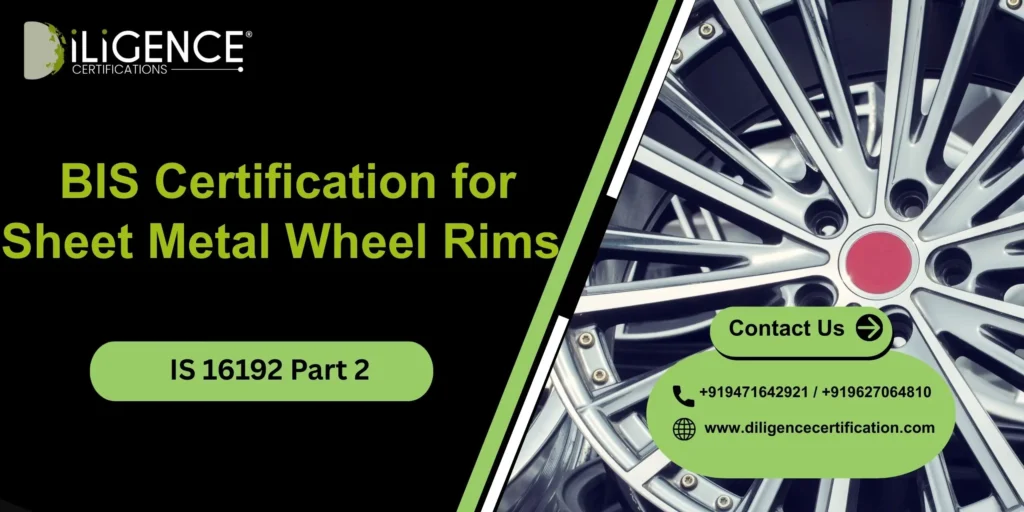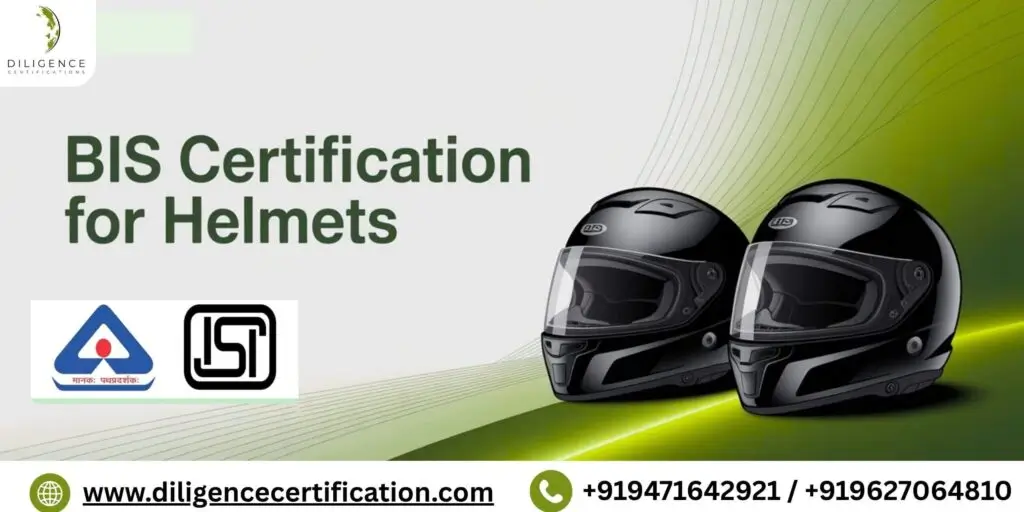- The Difference between BIS and CRS lies in their scope and enforcement.
- BIS is India’s national standard body, responsible for quality and safety.
- CRS is a scheme under BIS for compulsory registration of electronics.
- BIS certification covers more product types, CRS targets electronics.
- Understanding BIS vs CRS helps avoid compliance failures and market bans.
Introduction
Last year, a Delhi-based LED light importer called us in desperation. His consignment worth over ₹3.2 crore was stuck at customs. Why? He had ISO certification and CE marking, but missed the CRS certification requirement. He assumed BIS was optional for imports. It cost him four months in delays, warehousing penalties, and a near deal-breaker with his biggest retail client.
We see this again and again. The confusion between BIS and CRS causes significant losses for businesses across India. If you’re a manufacturer, importer, or startup in consumer electronics or IT hardware, it’s critical to understand the exact difference between BIS and CRS.
What is BIS (Bureau of Indian Standards)?

BIS, or the Bureau of Indian Standards, is India’s national standards body under the Ministry of Consumer Affairs. It sets and enforces quality benchmarks for products and systems through testing, certification, and surveillance.
Key Functions of BIS:
- Creating Indian Standards (IS) across industries
- Certifying products and services for quality and safety
- Managing hallmarking of precious metals
- Monitoring market compliance
The Different Types of BIS Certification schemes
Bureau of Indian Standards (BIS) has several certification schemes to make sure that products sold in India meet national quality and safety standards. Each scheme is designed for different product types and industries:
- ISI Mark Certification
This is the most popular and recognizable BIS scheme. It is mandatory for several products including cement products, pressure cookers, and electrical products. The ISI mark certification scheme ensures that products adhere to specific Indian Standards (IS). It includes factory inspections and ongoing quality checks. - Compulsory Registration Scheme (CRS)
Introduced by the MeitY and operated by BIS, the CRS is compulsory for electronic and IT products. This scheme applies to devices such as mobile phones, smart watches, and LED lights. Products are required to be tested in laboratories recognised by BIS before being imported, sold or manufactured. - Hallmarking scheme
This refers to gold and silver jewellery. Hallmarking ensures purity of precious metals and is compulsory for jewellers in India to protect consumers from being cheated. - Voluntary certification schemes
Manufacturers whose products are not subject to compulsory certification can voluntarily apply for the ISI mark, should they wish to display a commitment to quality and safety for consumers.nd CRS is a scheme run under its authority.
What is CRS Certification?

The Compulsory Registration Scheme (CRS) was launched in 2012 by the Ministry of Electronics and Information Technology (MeitY) and is enforced by the Bureau of Indian Standards (BIS). This scheme specifically targets electronic and IT products that have been officially notified under CRS regulations.
Any product listed under the CRS notification must be registered with BIS before it can be manufactured, imported, or sold in India. Without CRS certification, such products are not legally permitted to enter or operate in the Indian market.
Key CRS Product Categories :
- Mobile phones
- Power banks
- LED televisions
- Smart watches
- Bluetooth speakers
- Laptop adapters
- Microwave ovens
This list is regularly updated by MeitY, and manufacturers must check for changes.
How CRS Certification Works:
- The manufacturer (whether Indian or foreign) must get the product tested in a BIS-recognized laboratory.
- After successful testing, they must submit an online application to BIS with all required documents.
- Foreign manufacturers must appoint an Authorized Indian Representative (AIR) to apply on their behalf.
- Importers are responsible for ensuring that all overseas manufacturers they source from are CRS-compliant.
CRS is a mandatory BIS registration scheme that ensures notified electronic and IT goods meet Indian safety and performance standards. It protects consumers and supports the growth of quality-driven manufacturing in India.
BIS vs CRS: What’s the Actual Difference?
| Feature | BIS Certification | CRS Certification |
| Full Form | Bureau of Indian Standards | Compulsory Registration Scheme |
| Authority | Government of India | Sub-scheme under BIS |
| Scope | Products, systems, hallmarks | Electronics & IT hardware only |
| Mandatory? | For notified products | Yes, for 70+ electronics |
| Certification Type | ISI mark, Hallmark, CRS | Registration only (no ISI mark) |
| Applies to | Multiple industries | Electronics manufacturing/import |
| Label on Product | ISI mark (e.g., IS 302) | CRS number & label (e.g., R-41123456) |
BIS is the governing body; CRS is a scheme within it for electronics registration.
Avoiding Expensive Mistakes in CRS Certification
One of our Bangalore-based clients, a B2B electronics trader, assumed that getting CE marking from Europe was enough. When his shipment of wireless earbuds landed in Chennai, customs held it for lack of CRS registration. The entire product line had to be recalled for BIS lab testing and proper marking.
The total delay? 74 days.
Total penalty, warehousing, and re-marking cost? ₹4.6 lakhs.
He now runs every new product through our compliance checklist before even placing an order overseas.
BIS vs CRS confusion is not a theory. It’s a common, expensive reality.
What Products Need BIS Certification
- BIS certification is not limited to electronics. Many products in India require the ISI mark under different BIS certification schemes.
- These products fall under mandatory compliance due to safety, health, or quality standards.
Examples include:
- Cement – Must comply with IS 1489 (used in construction and infrastructure).
- Packaged Drinking Water – Must meet IS 14543 to ensure safety for human consumption.
- Steel Rebars – Used in reinforced concrete, certified under IS 1786.
- Pressure Cookers – Regulated under IS 2347 for consumer safety in kitchens.
- LPG Cylinders – Must comply with IS 3196 due to high-risk pressure handling.
- These certifications are part of ISI mark schemes, separate from CRS.
- CRS applies only to electronics and IT products, while ISI covers a much wider range of consumer and industrial goods.
- Manufacturers must check the BIS website for updated lists of products that require BIS certification under various schemes.
What Products Need CRS Certification (Compulsory Registration Scheme)
- CRS certification is mandatory for electronic and IT products notified by MeitY (Ministry of Electronics and Information Technology).
- Currently, over 76 product categories are listed under CRS.
- Examples of CRS-regulated products include:
- USB drives and power banks
- CCTV cameras and video surveillance systems
- Smart meters and e-book readers
- Wireless keyboards and set-top boxes
- LED lighting products and LED drivers
- USB drives and power banks
- Internal components such as:
- Power adapters
- Mobile chargers
- Switch-mode power supplies (SMPS)
- Battery packs for mobile devices
also require separate CRS certification.
- Power adapters
- A single device may need multiple CRS registrations (e.g., both a laptop and its charger).
- Certification must be done before import, sale, or distribution in the Indian market.
- Only BIS-recognized labs can perform product testing for CRS.
- Manufacturers must monitor the official BIS website for updated product lists and requirements.
How to Get CRS Certification: Step-by-Step Process

- Identify if your product falls under CRS
- Submit samples to a BIS-recognised lab
- Complete online application via the CRS portal
- Receive R-number (Registration Number)
- Label product with BIS CRS marking before sale
Duration: 4–8 weeks on average, longer if tests fail or documents are incomplete
How to Get BIS Certification (ISI Mark): Complete Process

- Product mapping to IS standard
- Application to BIS
- Factory inspection
- Sample testing in BIS lab
- Grant of ISI mark license
- Ongoing surveillance
Time: 2–3 months on average
Why You May Require both BIS and CRS in some circumstances
In some circumstances, a product is governed by both BIS and CRS expectations due to the product and the parts in consideration. Specifically, micowave ovens are electronic devices and would fall in to the Compulsory Registration Scheme (CRS), which is a registration becoming compulsory for most electronics notified by MeitY.
However, a microwave oven may also have components or materials, such as a power cord, switches, or plugs, that are controlled by other regulation(s), specifically the BIS ISI certification scheme. The components will be materially required to meet Indian Standards, and those components may also require various levels of certification independent of the components already categorized for the complete product under CRS.
This means that on the one hand, a manufacturer must achieve dual compliance by certification, one under the CRS authority on the whole, and another form not covered by CRS under ISI for a defined component’s view. BIS oversees both to ensure that not only a manufactured product, but also the vital parts of internal components are completed for quality and safety of the consumer.
In summary, with respect to manufacturing and/or importing complex products such as home appliances, BIS (ISI) and CRS may be required depending on how the component is defined, and how many parts in total are included with that component.
Conclusion
Understanding the distinction between BIS and CRS isn’t merely an academic concern. It could decide whether your product can legally be sold or imported into India. BIS is the parent organization; CRS is a scheme that falls under it for electronics and IT.
As either a manufacturer or an importer, knowledge of BIS vs CRS could mean the difference between keeping your operations running smoothly, or destroying your bottom line.
Need help with understanding the difference between BIS or CRS certification? Let our compliance specialists help you save time, money, and reputation.
FAQs on the Difference Between BIS and CRS
Is CRS the same as BIS?
No, CRS (Compulsory Registration Scheme) is not the same as BIS. BIS is the national standards body of India while CRS is one of the certification schemes operated by BIS that covers electronic and IT products.
Does all electronics need CRS certification?
Only electronic and IT goods specifically notified by the Ministry of Electronics and Information Technology (MeitY) require CRS certification. The list of notified products is updated by BIS on their official website at regular intervals.
Can I import electronic items without CRS?
No, you cannot import notified electronics if you do not have valid CRS registration. Customs authorities may detain or impound non-compliant shipments at Indian ports.
Does BIS certification mean my product is CRS certified?
Not necessarily. BIS has numerous schemes including ISI mark and CRS. While ISI applies to a variety of goods, such as cement, CRS applies only to electronics referenced in MeitY notifications.
Is CRS certification valid forever?
No, CRS registration is not valid forever. It typically has a two-year validity period. You must renew your application before the expiry date to stay compliant, and to continue to sell or import the same product in India.
Who needs to apply for CRS registration?
The manufacturer of the electronic product applies for CRS registration, not the importer or distributor. This applies whether the manufacturer is based in India or outside India.
Is CRS certification applicable to Indian manufacturers only?
CRS is applicable to both Indian and foreign manufacturers in the notified list as it is a compulsory requirement. Foreign manufacturers have to engage an Authorized Indian Representative (AIR).
What if my product model has some changes?
Any change to the model number, design or components (whether large or small) could constitute the need to make a new CRS application or to amend the existing one. In this case, BIS will determine whether the changes fall within the scope of the original registration.
What is the process to get CRS certified?
The process can take typically 4–6 weeks if the documents and samples are submitted on time. The general process includes product testing carried out in a BIS approved lab, online application, document verification and application approval by BIS
Can I bundle different models under one CRS license?
This really depends. Similar models with minor differences can be bundled as one license, but all products need to be tested and listed separately. The guidelines set out by BIS will further clarify any criteria for bundling.

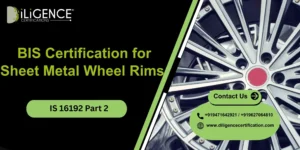
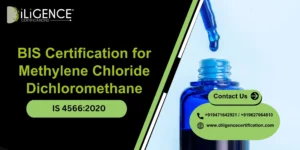
 BIS Certification
BIS Certification
 CDSCO
CDSCO
 CPCB
CPCB
 LMPC
LMPC
 WPC Approval
WPC Approval
 Global Approvals
Global Approvals
 TEC
TEC
 ARAI
ARAI
 BEE
BEE
 ISO Certification
ISO Certification
 Drone Registration
Drone Registration
 NOC For Steel
NOC For Steel



















 Business Registration
Business Registration














 Legal Services
Legal Services
 Trademark Registration
Trademark Registration
 Copyright Registration
Copyright Registration
 Patent Registration
Patent Registration
